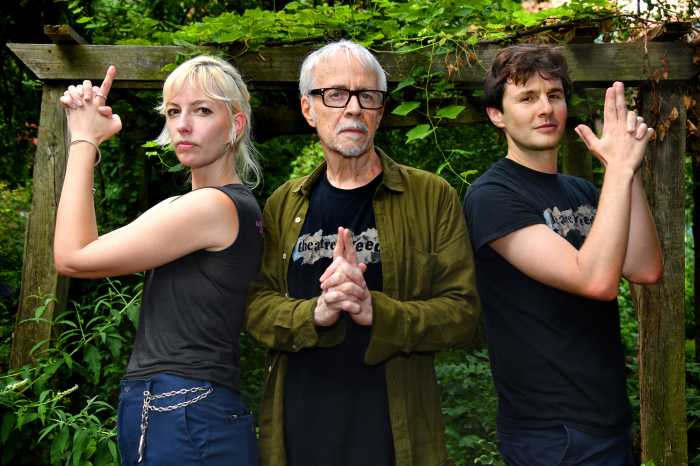By Albert Amateau
The property just outside the Gansevoort Market Historic District where a developer has proposed a 32-story hotel designed by the architect Jean Nouvel is again in play, according to sources in the Meatpacking District and preservation advocates.
Stephen Touhey, the developer whose proposal to build the tall hotel tower at 848 Washington St. in the low-rise district where meat wholesales still maintain a presence, has apparently let his option to buy the property from the Romanoff organization drop.
Now, Andre Balazs, whose Mercer Hotel in Soho, and Chateau Marmont in Hollywood are among his holdings, is poised to develop the site that straddles the southern end of the High Line, the derelict rail viaduct that is to be converted into an elevated park.
However, neither Touhey, Balazs nor the Romanoff family returned phone calls to The Villager for comment on the matter.
Nevertheless, Gansevoort Market preservation advocates have been talking about the prospect with meatpackers.
“We’ve heard from reliable sources that Touhey has lost control of the site and that Balazs is a potential developer,” said Andrew Berman, director of the Greenwich Village Society for Historic Preservation.
The site is in a manufacturing zone where hotels may be built as-of-right without special permits and residential uses are prohibited. Touhey, however, won a ruling from the Department of Buildings in January 2003 that he could build the tower with 51 percent of the units for transient hotel guests and 49 percent for long-term guests — essentially half hotel and half residential.
The proposal outraged preservationists and meatpackers, who said that residential apartments would compromise the integrity of the district where meatpackers and nightlife establishments co-exist. Residents, they feared, would find the noise of nightclubs, coupled with the din and smell of the wholesale meat business, intolerable and seek to change the zoning of the area.
Indeed Touhey originally wanted the 32-story Nouvel-designed tower to be all residential and applied to the Board of Standards and Appeals for a variance to allow residential use, but the B.S.A. denied the request.
And much to the satisfaction of meatpackers and preservationists, the Department of Buildings in April reversed the ruling to allow long-term residential units in the hotel.
But the prospect of a super-luxury hotel like the one Balazs is likely to build as part of a $23 million project on the Washington St. site makes Meat Market advocates uneasy.
“One of our worries is that to make an investment like that pay off, a developer is going to encourage residential,” said Florent Morellet, who owns a restaurant in the Meat Market and is a co-founder of the Save the Gansevoort Market preservation group. “Lots of hotels like the Waldorf Astoria and the Stanhope sell shares to people who live there, and it could happen here,” Morellet said.
Morellet and Jo Hamilton, also a co-founder of Save the Gansevoort Market group, are exploring the possibility of bringing wholesalers from the Flower District in the W. 20s around Sixth Ave. to the Gansevoort area where the number of meat wholesalers has been declining steadily.
Moreover, some residents on the edge of the Gansevoort district have a problem with hotels.
On Thursday night, June 3, a loud party at the Hotel Gansevoort, which opened at the end of last year in the triangle at Ninth Ave. between W. 13th and Little W. 12th Sts., provoked neighbors’ anger.
Elaine Young, one of the neighbors, phone the city central complaint number 311 and then called the hotel and threatened to march on the place, but a receptionist said the music would stop before 10 p.m. Indeed, quiet did return to the area at 9:40 p.m. “And we saw a caravan of cop cars streaming toward the Gansevoort,” said Young in an e-mail to neighbors, adding. “There’s a moral here about concerted (although anonymous) community action.”




































